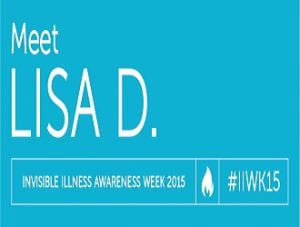Currently, there are few effective therapeutic options for patients with MuSK antibody-positive myasthenia gravis (MG). A majority of those with MG have autoantibodies targeting the acetylcholine receptor. As a result, acetylcholinesterase inhibitors are the standard-of-care. But those with MuSK antibody-positive MG do not typically respond well, or at all, with these therapies. While there are other treatment options available, such as immunosuppressants and rituximab, these often result in adverse reactions and are more time-consuming. Thus, a new therapeutic option could greatly change the treatment landscape for those with MuSK antibody-positive MG. According to a news release from biotechnology company Cabaletta Bio, Inc. (“Cabaletta”), a new treatment option is on the horizon: MuSK-CAART.
In fact, MuSK-CAART recently received Fast Track designation from the FDA. Below, we’ll detail what that means and how this therapeutic option works.
About MuSK-CAART
So what exactly is MuSK-CAART? Developed by Cabaletta Bio using its proprietary technology and CABA platform, MuSK-CAART targets B cells that differentiate into antibody-secreting cells. Once these cells differentiate, they begin to develop autoantibodies against muscle-specific kinase (MuSK). Normally, MuSK plays a role in maintaining the health of the neuromuscular junction. However, the neuromuscular junction is then impacted when the autoantibodies attack MuSK. Therefore, MuSK-CAART works by removing or inhibiting these autoantibodies. In doing so, Cabaletta hopes that MuSK-CAART will help improve muscle strength and quality-of-life. To learn more about MuSK-CAART, head here.
Recently, MuSK-CAART received Fast Track designation from the FDA. This designation is designed to expedite the review and development of drugs and biologics which are meant to:
- Treat rare, serious, or potentially fatal conditions
- Fulfill unmet needs within these communities
For receiving this designation, Cabaletta also receives certain benefits, such as Rolling Review, Accelerated Approval and Priority Review eligibility, and more frequent written and in-person communication with the FDA during this process. To learn more about Fast Track designation, take a look at this explanation from the FDA.
Moving forward, researchers hope to evaluate MuSK-CAART in a clinical trial by the end of this year.
What is Myasthenia Gravis (MG)?
Myasthenia gravis (MG) roughly translates to “grave muscle weakness,” and is considered the most common autoimmune neuromuscular disorder. As explained above, MG results from autoantibodies mistakenly attacking the neuromuscular junction, causing muscle weakness and other symptoms. Typically, symptoms worsen following activity. While MG may refer to grave muscle weakness, the prognosis is not really grave at all. Only around 10% of those with MG experience serious or life-threatening complications. There are multiple rare subsets of MG, including transient neonatal, congenital, and juvenile. Symptoms may vary depending on subtype. However, common symptoms include:
- Changes in gait
- Slurred speech
- Difficulty chewing or swallowing
- Drooping eyelids
- Weakness and fatigue in skeletal muscles
- Neck or limb weakness
- Shortness of breath
- Chest wall weakness and serious breathing difficulties (complication)







